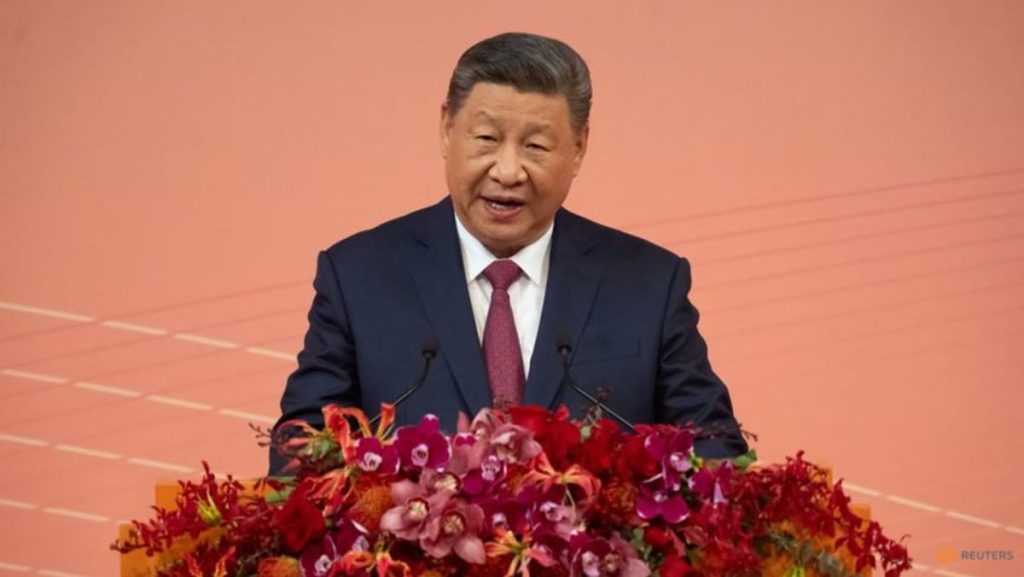The nascent relationship between US President-elect Donald Trump and Chinese President Xi Jinping is poised at a critical juncture, characterized by a blend of cautious optimism and underlying tensions. Trump, in a recent interview, revealed ongoing communication between their respective representatives, expressing confidence in the potential for a positive rapport with Xi, whom he acknowledges as a strong and influential leader within China. This initial overture, while seemingly conciliatory, is tempered by Trump’s recurring critique of China’s economic practices, emphasizing the need for reciprocity in their dealings. This sets the stage for a complex interplay of cooperation and potential conflict as the two leaders navigate the intricacies of US-China relations.
Trump’s characterization of Xi as a powerful figure resonates with the Chinese leader’s consolidated authority and influence within the Chinese Communist Party. Xi’s ascension to the presidency and subsequent consolidation of power have cemented his position as a dominant force in Chinese politics, a reality acknowledged by Trump. This recognition, coupled with the ongoing communication between their representatives, suggests a pragmatic approach by Trump, recognizing the importance of engaging with Xi directly. However, the underlying tensions stemming from Trump’s accusations of unfair economic practices by China remain a significant hurdle in the path towards a truly collaborative relationship.
The economic dimension of the US-China relationship looms large, with Trump reiterating his concerns about China’s trade practices, accusing them of “ripping off” the US. This rhetoric, a recurring theme throughout his campaign, highlights a core area of contention that could significantly impact the trajectory of their bilateral relations. Trump’s threat to impose tariffs on Chinese goods, including a potential 10% tariff related to fentanyl trafficking and the previously mentioned potential for tariffs exceeding 60%, underscores his willingness to leverage economic pressure to achieve his objectives. This assertive stance signals a potential shift in US trade policy towards China, potentially leading to trade disputes and economic repercussions for both countries.
While Trump extended an invitation to Xi for his inauguration, the likelihood of Xi’s attendance remains slim, given the established protocols and precedent for Chinese leaders regarding such events. The complexities of the US-China relationship, compounded by Trump’s rhetoric and policy pronouncements, further diminish the prospects of Xi’s presence at the inauguration. However, the invitation itself, regardless of its acceptance, can be interpreted as a symbolic gesture, indicating Trump’s intention to engage with Xi and the Chinese government, albeit on his own terms.
The appointments to Trump’s incoming administration further complicate the dynamics of the US-China relationship. The selection of individuals known for their hawkish stance on China, such as Senator Marco Rubio for Secretary of State, signals a potential hardening of US policy towards China. These appointments could influence the tone and direction of future negotiations, potentially increasing the likelihood of confrontational approaches to trade and security issues. This adds another layer of complexity to an already delicate situation, raising concerns about the potential for escalating tensions between the two superpowers.
Looking ahead, the US-China relationship under the Trump administration is likely to be characterized by a blend of engagement and confrontation. While Trump has expressed optimism about his potential rapport with Xi, his persistent criticism of China’s economic practices and the appointment of China hawks to key positions suggest a willingness to challenge the status quo. This delicate balancing act between cooperation and confrontation will require careful navigation by both leaders to avoid escalating tensions and ensure a stable and productive relationship. The future trajectory of US-China relations will undoubtedly be shaped by their ability to find common ground on critical issues while managing their differences effectively. The world will be watching closely as these two powerful nations chart their course in the years to come.

